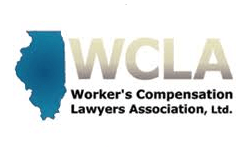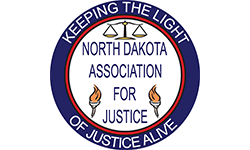What You Need to Know About Social Media When Filing a Lawsuit

In today’s world, we often connect with each other through social media. Even though social media can be a great way to stay in touch with people you don’t see, it can be an outlet for some people to post very personal information to the public. You might think the people using social media are of the younger population, but actually the Pew Research Center claims that 72% of adults in the U.S. use at least one social media site.
In fact, 82% of adults aged 30 to 49 have at least one social media site, the most popular being Facebook. On social media accounts, you’re likely to post details about your life for your friends to see. But even if your privacy settings are set to the highest levels, that doesn’t mean that your posts are safe in the event of a trial.
How Can Social Media Affect Your Claim?
During the discovery process of a trial, anything on your public social media accounts can be used against you. When it comes to the law, social media platforms count as public information and not private. This means that the court will examine that information and consider it, as well as all of your public posts and/or comments, as evidence.
Depending on what you post, you could present a different narrative on the internet than what you initially presented to the police. In that case, your compensation could be reduced and no longer cover all of your expenses for injuries and damages. Because of this, it’s recommended to always post as if it could one day be read in a deposition.
What to Avoid Posting
Attorneys from the opposing side of your case will most likely scour your social media to find anything that will help prove their claims against you. Even if you think your account is personal and can’t be used, you should be careful about your posts. It’s best not to post, though, because even if you think you’re making yourself look better, you could be doing the opposite in the eyes of the court. Here are some posts to avoid when dealing with a lawsuit:
- Apologies. Even if you weren’t at fault, you might feel the need to post an apology on social media. A post like this could show that you claim responsibility for the accident regardless of who was really liable.
- Rants. Long, angry posts on your social media venting about the accident will not help you in your claim. Even though your posts are intended to expose the other parties who you feel have done you wrong, the judge might not see them that way. Anything negative, or anything that could be construed as negative, that you say about the accident could reduce your settlement.
- Other posts. If you are claiming that you were seriously injured in an accident, but you’re posting that you’re out and about and fine, then the judge will see that, and it will work against you in your case. If other people tag you in posts to try to show support for you after your accident, that can also negatively affect your claim. Make sure to un-tag yourself and avoid interacting with the posts in any way so that nothing is misconstrued.
- Photos. Even though you should take photos of an accident scene, you shouldn’t post them on social media. Those pictures are meant for your case, not your public page, so posting them could work against you. Any pictures that you post that contradict your claims can also harm your case, so it’s best to avoid posting pictures on social media after an accident.
If you’re unsure if any of your posts could affect your case, it’s best to consult your personal injury lawyer. They can help you comb through your social media to ensure the best possible outcome of your case.
Preferred Capital Funding Can Help
At Preferred Capital Funding, we know how hard a lawsuit can be physically, emotionally, and financially. Sometimes cases get even tougher when they take longer than usual to resolve. That’s where we come in. We may be able to give you the cash you need while your attorney works to ensure you get the compensation you deserve. Apply for a loan today to find out if we can help.





















